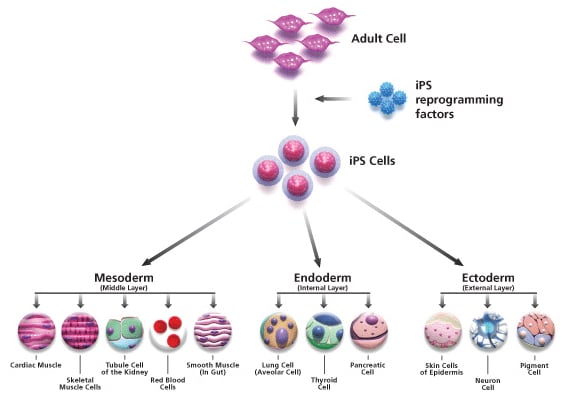Induced Pluripotent Stem Cell Differentiation Protocols
Adult somatic cells can be reprogrammed into induced pluripotent stem cells (iPSCs) with the overexpression of key reprogramming genes (OCT4, KLF4, SOX2, cMYC, NANOG and LIN28). Human iPSCs have the unique ability to differentiate into any cell type of the body including:
- Ectodermal: Neuron, Astrocyte, Oligodendrocyte, Retinal Epithelial Cell (RPE), Epidermal, Hair and Keratinocytes.
- Endodermal: Hepatocyte, Pancreatic β-islet Cell, Intestinal Epithelial Cell, Lung Alveolar Cells.
- Mesodermal: Hematopoietic, Endothelial Cell, Cardiomyocyte, Smooth Muscle Cell, Skeletal Muscle Cell, Renal cell, Adipocyte, Chondrocyte and Osteocytes.

Figure 1.IPSC Pathway
We offer a large collection of cell culture media, supplements, bioactive small molecules, and growth factors used to control the cell fate of human iPSCs. The table below highlights the most widely used protocols, media and characterization antibodies used to differentiate human iPSC’s into different cell lineages.
登入以繼續
若要繼續閱讀,請登入或建立帳戶。
還沒有帳戶?